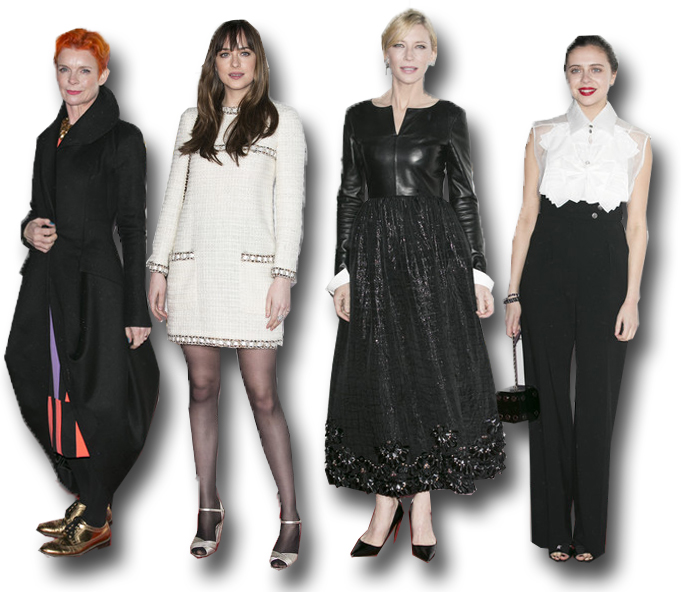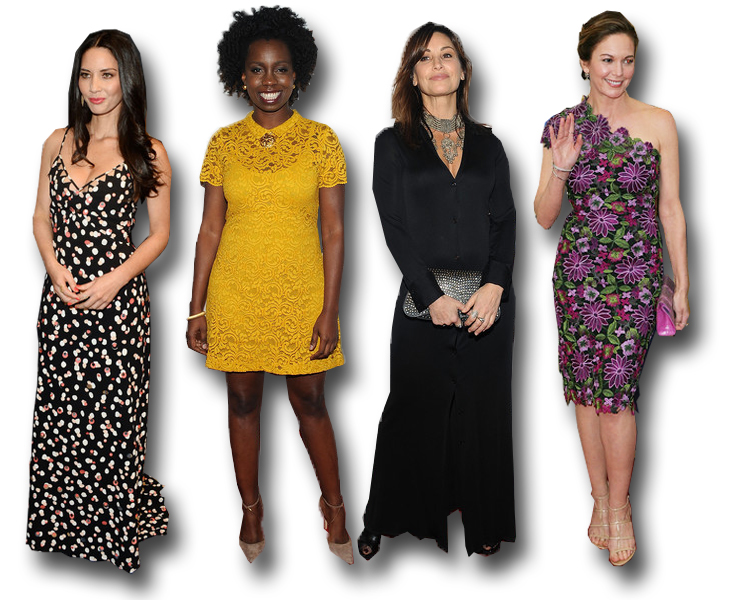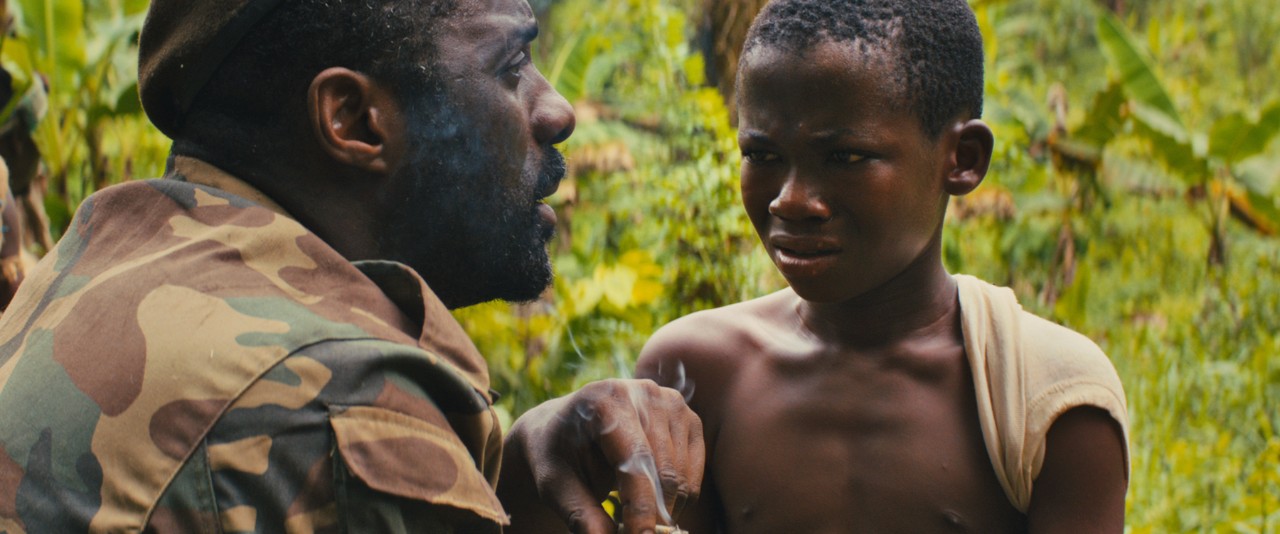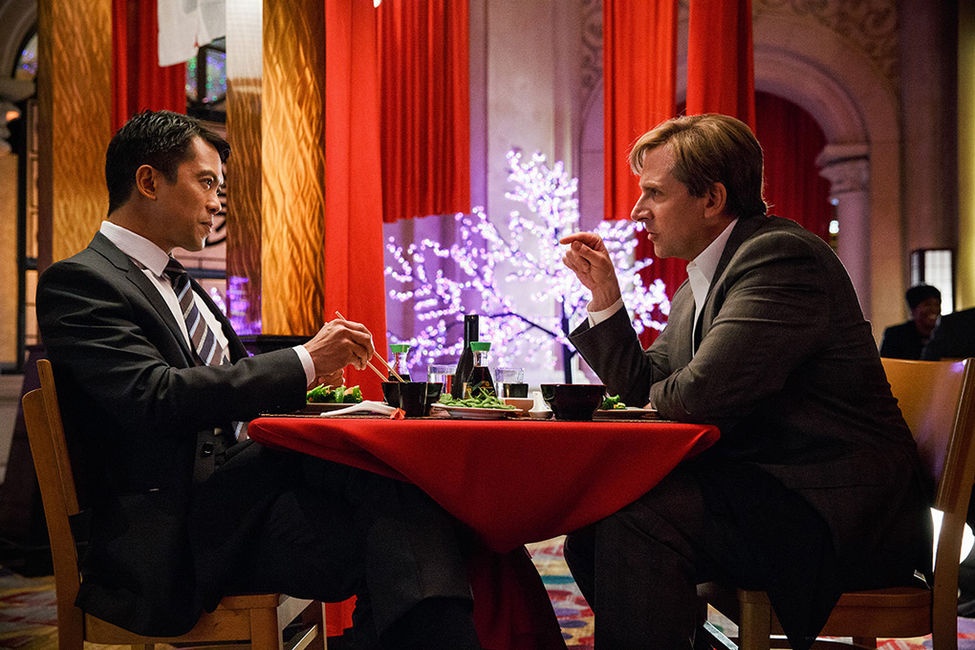Anne Marie here, wiping the glitter from my eyes after another year of AFI Fest.

The closing night party of AFI Fest presented by Audi was the premiere of The Big Short, the star-studded story of the 2007 financial crisis. Director Adam McKay is best known for comedies like Anchorman, but in defiance of genre expectations, McKay has adapted a book by Michael Lewis of Moneyball fame. Nearly the entire cast walked the red carpet: Steve Carell, Ryan Gosling, and Christian Bale were in attendance (minus Brad Pitt), along with the lesser-used-but-no-lesser-in-our-minds Melissa Leo, Finn Wittrock, Adepero Oduye, and Academy Award Winner Marisa Tomei.
The Big Short is a tough sell as Wall Street movies go. If it had been made 2 or 3 years ago, McKay's comedy drama might have been considered on point, but after the Occupy Movement, Wolf of Wall Street, and an economy finally limping back towards recovery, The Big Short may have trouble motivating an audience. Part of its challenge is that McKay's protagonists are the traders who profited off of the collapse of the economy. Three groups of traders - Christian Bale's glass-eyed genius, Carell's angry Chicken Little, and Brad Pitt's charismatic "retired" trader, all corralled by Ryan Gosling's slick Wall Street insider - see the housing market bubble about to explode, and decide to bet against the house. McKay attempts to portray them as prophetic, or at least clear-eyed in the face of systematic stupidity, but a third act shift towards righteous indignation does away with any good will that may have been built.
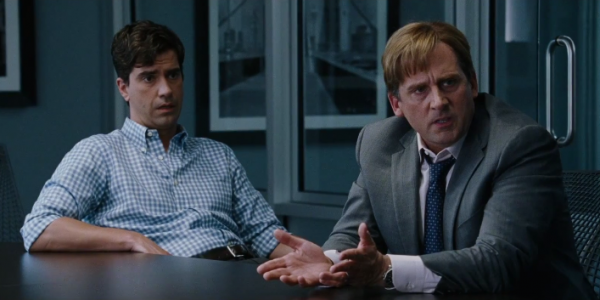
Tone is a struggle overall for McKay, and the weakest point of a film with a lot of balls in the air. How exactly do you make a movie about the financial market that is entertaining, informative, and accessible? Drawing from his comedy roots, McKay keeps the build up to 2007 fairly light, adding fantastical inserts in order to explain financial concepts. (The audience favorite was Margot Robbie in a bubble bath explaining subprime loans.) However, these stylistic risks, along with random intertitles and quick montages, as often as not obscure rather than enlighten. Once the financial crisis hits, McKay pulls an abrupt about-face, and righteous indignation takes hold. Whether audiences take to the film's message may depend on how redundant this righteous indignation feels 2 hours into the movie and 7 years after the fact.
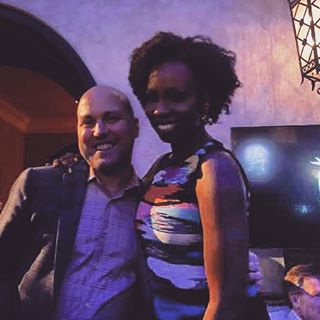 At the afterparty, crowds swarmed around the major stars who made a fairly hasty exit. However, we stuck around and got to meet Adepero Oduye, who plays a small role as Steve Carell's advisor in The Big Short, but is better known as the star of Dee Rees's lauded 2011 film Pariah. Nathaniel snagged a picture with Oduye and chatted with her about Meryl Streep's shoutout at the 2012 Golden Globes (all roads do lead to Meryl).
At the afterparty, crowds swarmed around the major stars who made a fairly hasty exit. However, we stuck around and got to meet Adepero Oduye, who plays a small role as Steve Carell's advisor in The Big Short, but is better known as the star of Dee Rees's lauded 2011 film Pariah. Nathaniel snagged a picture with Oduye and chatted with her about Meryl Streep's shoutout at the 2012 Golden Globes (all roads do lead to Meryl).
Later, we got into a brief conversation with Oduye about Pariah's influence. She was extremely gracious as she gushed over the film's personal signficance for her, and its importance in LGBTQ representation of people of color. Then we chatted about passion projects. We ended the conversation with a hug. That was hands down the warmest way I've ever ended a film festival.
 Thursday, June 16, 2016 at 8:00PM
Thursday, June 16, 2016 at 8:00PM 


